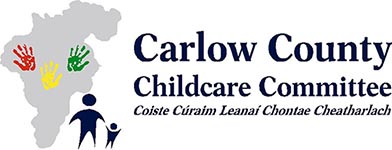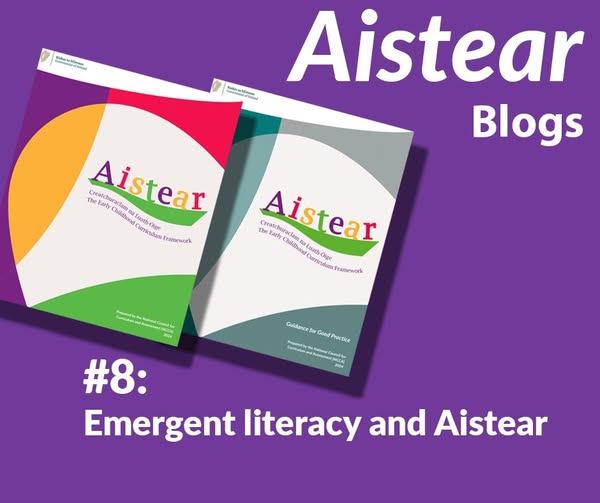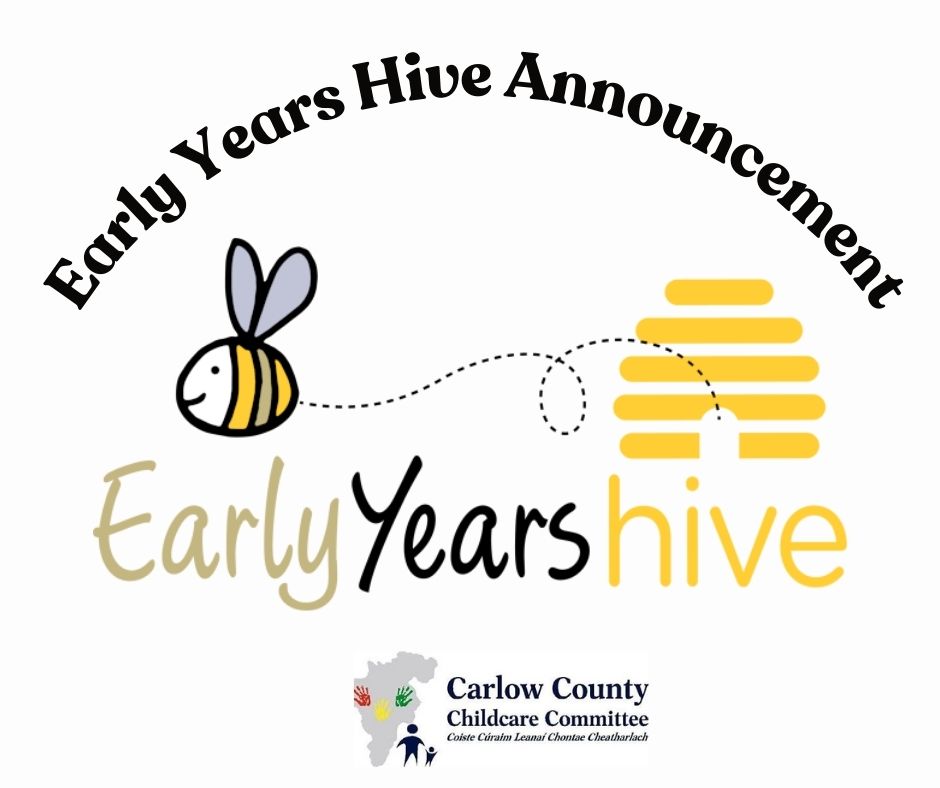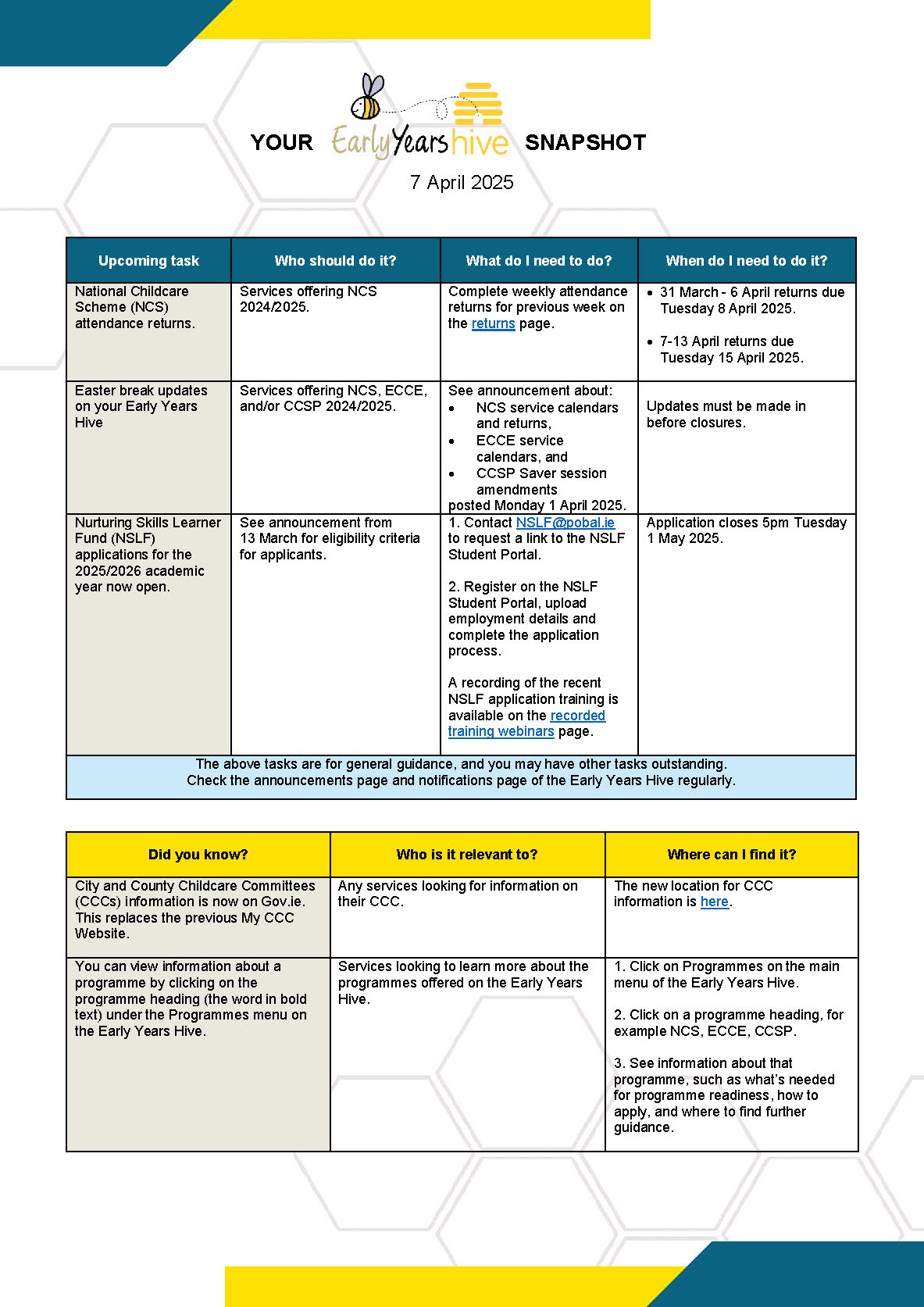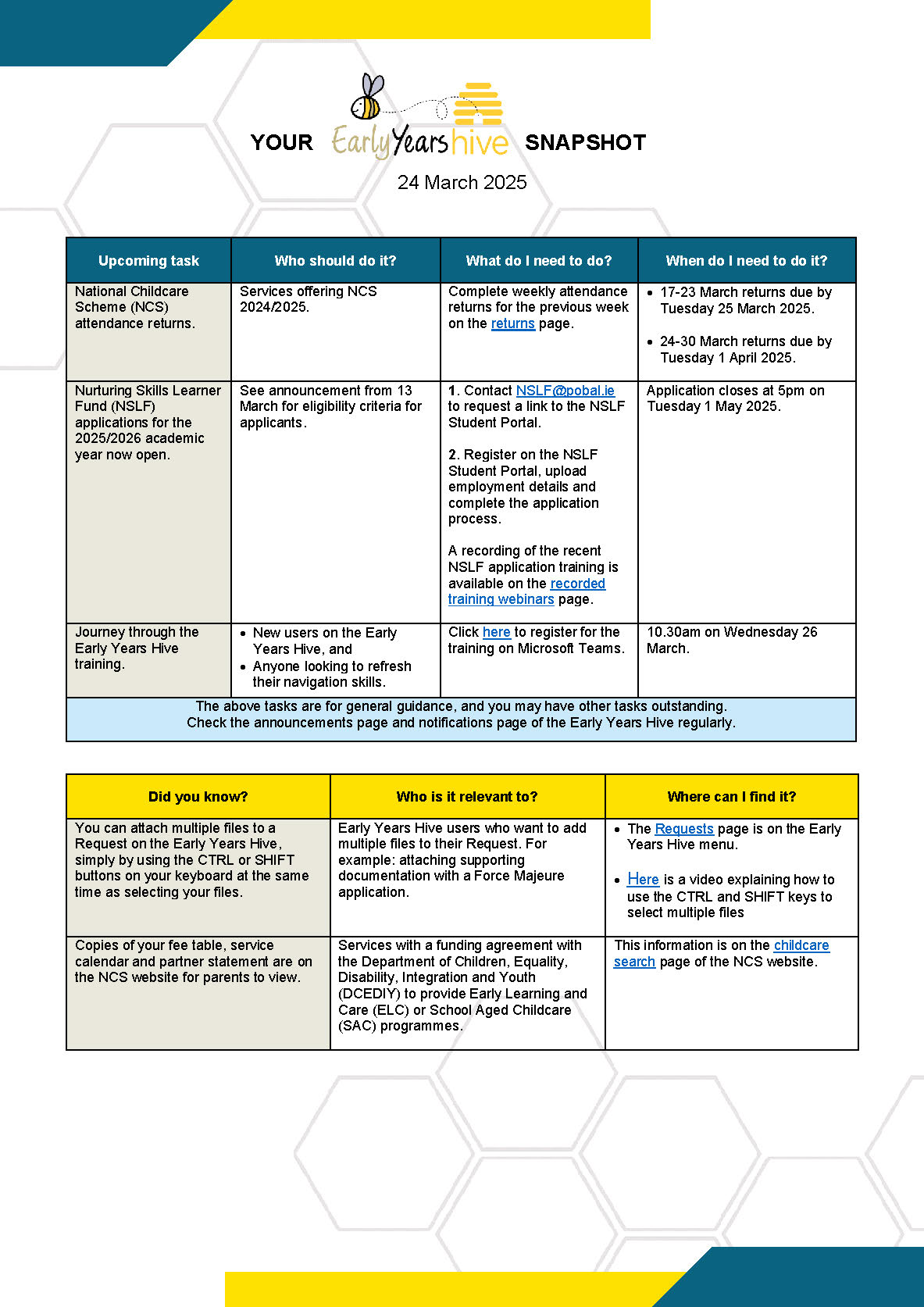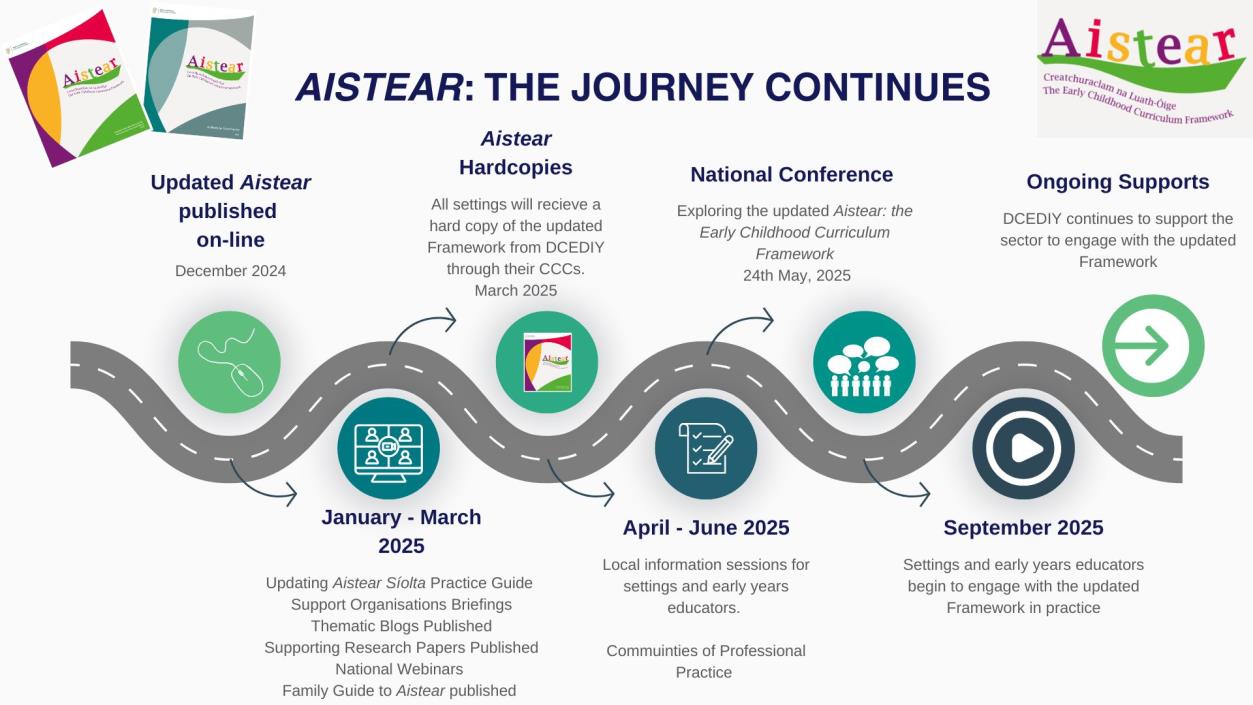Aistear Blogs #8: Emergent literacy and Aistear
This blog looks at emergent literacy in the updated Aistear curriculum framework (2024). In early childhood, literacy involves the development of communication and language(s), as well as the exploration and development of skills, concepts, knowledge and understanding through multi-sensory, multi-modal and interconnected ways. This understanding of emergent literacy supports the recently launched Ireland’s Literacy, Numeracy and Digital Literacy Strategy 20242033: Every Learner from Birth to Young Adulthood.
The updated Framework, emphasises supporting babies, toddlers and young children in developing a growing understanding of language and print, which forms the foundation for communicating, reading and writing. Emergent literacy is embedded in all of Aistear’s themes but is particularly emphasised in the Theme of Communicating. This Theme focuses on babies, toddlers and young children sharing their experiences, thoughts, ideas, feelings, interests, needs and rights with others, with growing muinín (confidence) and competence in various ways and for various purposes. All of the Aims and Learning Goals in Communicating are useful in supporting emergent literacy.
Experiencing inclusive and rich communicative environments empowers babies, toddlers and young children to engage daily in a variety of emergent literacy experiences through a slow relational pedagogy. They use multiple ways to communicate, with oral language being just one of these. They may babble, cry, point, scream, frown, make marks, draw and talk to get their messages across. They also learn to listen and take turns in conversations. Extending their vocabulary by learning new words is important, as is learning about other language(s) including English and Gaeilge.
Babies, toddlers and young children enjoy noticing and talking about pictures, books, posters, photos, people, animals and nature. They love singing nursery rhymes and songs. Access to a variety of books is important but they will have their favourites, and it is ok to read these over and over again! Babies will quickly realise that symbols can be understood by others. They enjoy lifting flaps, feeling textures and pointing to characters in the story. Toddlers like talking about the pictures and making sounds to match the story. Young children enjoy listening to stories being read and discussing the plot. They may also ‘read’ the story themselves. Babies, toddlers and young children quickly learn how to ‘read’ books – holding them the right way up, reading from left to right and turning pages in sequence. Access to books that are culturally relevant and reflect diversity is key. Using puppets and other props to bring stories to life in a playful way provides opportunities to explore characters and events in stories, promoting higher order thinking. The use of open-ended questioning also supports this. Visiting the local library and encouraging reading with families helps make experiences more meaningful.
The role of the agentic educator is to draw attention to literacy in everyday routines and situations. This can include modelling writing messages and reading them back, taking on roles during play, making signs for shops; writing prescriptions for the chemist, writing letters to Santa or making passports. Providing easy access to a variety of mark making materials – such as paint, crayons, chalk, pastels, different types of paper as well as loose parts and other materials to create transient art – is also important. Emphasising the process over the product supports babies, toddlers and young children to express themselves creatively. It is also important to help them develop a love of reading through art and a love of art through books, as art and literacy are very closely interlinked.
The updated Aistear offers educators many ways to support babies, toddlers and young children in developing their emergent literacy. Educators have the knowledge, skills and abilities to interpret the Principles and Themes in a way that is relevant to their individual context. This empowers educators to support babies, toddlers and young children to continue their learning and developing in the area of emergent literacy.
